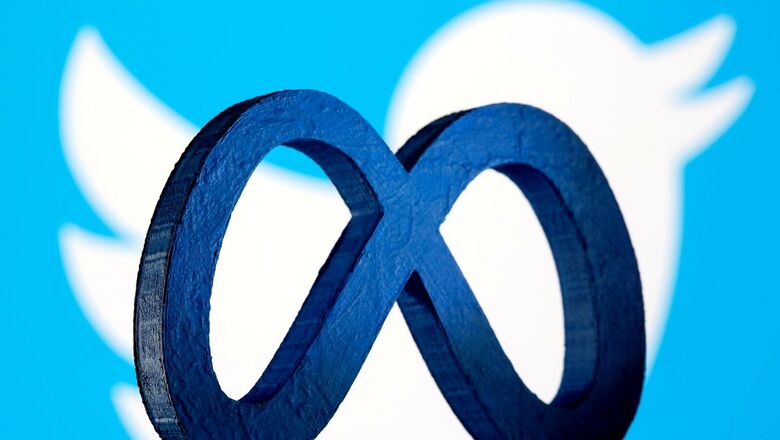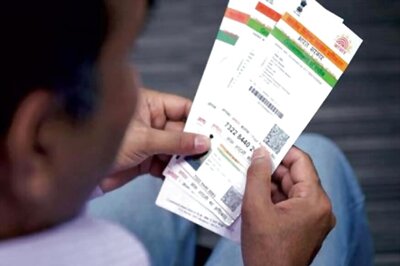
views
The Government of India this week notified rules under which it will set up appellate panels to redress grievances that users may have against decisions of social media platforms like Twitter and Facebook on hosting contentious content.
The three-member Grievance Appellate Committee will be set in three months, a gazette notification issued by MeitY (Ministry of Electronics and Information Technology) said on a day big tech was rocked by Elon Musk finally becoming the owner of Twitter.
In an exclusive interview to CNN-News18, IT Minister Rajeev Chandrasekhar said big tech companies operating in India would have to abide by Indians’ constitutional right to non-discrimination, right to free speech and right to privacy irrespective of where they may be headquartered.
He added that social media networks will have the obligation to remove any “misinformation” or illegal content or content that promotes ill-will between different groups on the grounds of religion or caste with the intent to incite violence within 72 hours of being flagged.
“We are the largest connected democracy in the world today and we will be the largest connected nation by 2025 with 120 crore Indians online. So, in a lot of ways, we are playing the leadership role and showing the way to the world by making our cyber space a safe and trusted space,” he said.
The 2021 IT Rules
The IT Rules (Intermediary Guidelines and Digital Media Ethics Code), 2021 specified compliance requirements for significant social media intermediaries — platforms that have more than 5 million subscribers — such as the designation of a chief compliance officer, a nodal point for coordination and a grievance officer.
It also required the social media networks to identify the first source of information on its platform. It implemented a three-tier system to handle complaints about streaming services and online news.
Grievances are handled within the organisation at the first level, a self-regulatory body at the second, and a government-run committee at the third, which can overturn any decision made by the other two bodies.
The 2021 rules required the platforms to exercise greater caution when it comes to the content they host. The grievance officer of the platform’s redressal mechanism was in charge of receiving and resolving user complaints. They were expected to acknowledge the receipt of the complaint within 24 hours and to handle it appropriately within 15 days.
Additionally, the law stated that the privacy policies of social media platforms must ensure that users are educated about not circulating copyrighted material and anything that could be construed as defamatory, racially or ethnically objectionable, paedophilic, endangering India’s unity, integrity, defence, security, or sovereignty, or violating any contemporary law.
What the Amendments Say
The amendments bring in a new Grievance Appellate Committee (GAC). Those dissatisfied with the decisions of social media companies’ grievance officers may file an appeal with a GAC under the Information Technology (Intermediary Guidelines and Digital Media Ethics Code) Amendment Rules, 2022
The GAC’s decisions will be binding on the social media companies or intermediaries, according to the notification. Furthermore, the revised rules include an online dispute resolution mechanism.
Apart from observing what type of content is being posted online, these intermediaries are also now responsible for informing their users of these rules, regulations, and privacy policies at least once a year.
The new rules state that in the event of a complaint about a post, the intermediaries must acknowledge the report within 24 hours, resolve it within 15 days, and remove the post within 72 hours. Furthermore, anyone who is dissatisfied with the resolution of their complaint has 30 days to contact a GAC. The GAC will make an effort to resolve the appeal within 30 days.
In a press conference, IT Minister Chandrasekhar said a new addition to the rules states that the platforms should now make efforts to make sure that “no unlawful content is posted on the platform”. The broad category of obligations that intermediaries need to follow includes misinformation.
“The new rules make it very clear that regardless of where your jurisdiction is, if you are providing your service to an Indian citizen, then Articles 14,19 and 21 of the Constitution cannot be diluted or ignored,” he said.
Read all the Latest Tech News here


















Comments
0 comment